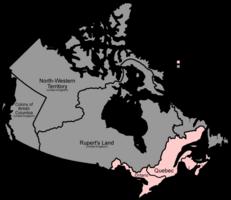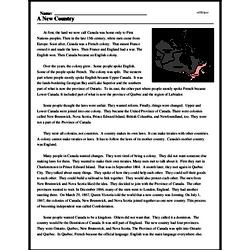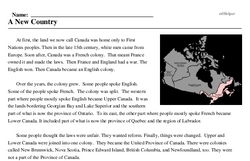A New Country
At first, the land we now call Canada was home only to First Nations peoples. Then in the late 15th century, white men came from Europe. Soon after, Canada was a French colony. That meant France owned it and made the laws. Then France and England had a war. The English won. Then Canada became an English colony.
Over the years, the colony grew. Some people spoke English. Some of the people spoke French. The colony was split. The western part where people mostly spoke English became Upper Canada. It was the lands bordering Georgian Bay and Lake Superior and the southern part of what is now the province of Ontario. To its east, the other part where people mostly spoke French became Lower Canada. It included part of what is now the province of Quebec and the region of Labrador.
Some people thought the laws were unfair. They wanted reform. Finally, things were changed. Upper and Lower Canada were joined into one colony. They became the United Province of Canada. There were colonies called New Brunswick, Nova Scotia, Prince Edward Island, British Columbia, and Newfoundland, too. They were not a part of the Province of Canada.




